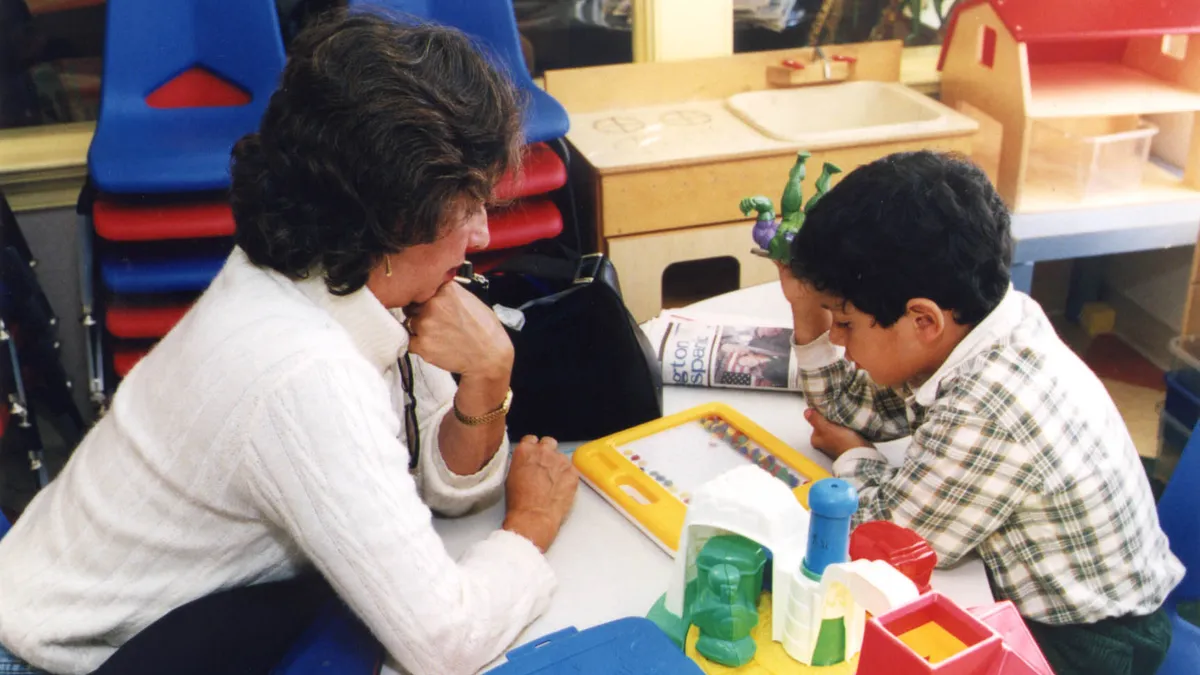Dive Brief:
-
The ASD Nest Program in New York City places students with autism spectrum disorders in classrooms alongside "neurotypical" students while under the guidance of specially trained teachers, The Atlantic reports. Stephen Shore, a special education professor at Adelphi University who has autism, told the publication the program is effective because it focuses on the students’ strengths and not their weaknesses.
-
Launched in 2003, the ASD Nest program in New York City is a collaboration of the NYC Department of Education and New York University. Two certified teachers — trained in special needs education — are in each ASD Nest classroom, allowing for one-on-one support for students on the autism spectrum. The teachers meet with occupational, speech and physical therapists each week to discuss students’ progress.
-
Teachers guide the ASD Nest students on emotional cues they often missed, which helps prepare them for some independence as adults. For example, teachers train ASD Nest students to understand smiles are a gesture of good will, not an invitation to fight.
Dive Insight:
Studies indicate including students on the autism spectrum in regular classrooms can help encourage the development of communication, language and basic social skills. Also, integrating these learners can have multiple benefits for their peers, who gain leadership experience and compassion, which could reduce bullying.
However, many teachers feel ill-prepared to provide proper support to children with learning disabilities. Only 17% of general education teachers feel “very well prepared” to teach these students, yet nationally one in five public school students has a learning disability. Only seven states require future general education teachers to take classes on educating these students.
Programs like ASD Nest could circumvent some of the problems before they escalate. In West Linn-Wilsonville School District in Oregon, for example, staff are moved around the school to make sure all classrooms are appropriately covered in case a student with special needs becomes disruptive.
Training general ed teachers to support special needs students could help alleviate some of the discipline problems in classrooms. Special needs students are far more likely to be disciplined than their peers, and part of the problem is lack of time and money to implement non-punitive measures. Many experts are urging new discipline methods that gently push students on the right track by looking at the underlying causes for their misbehavior.














